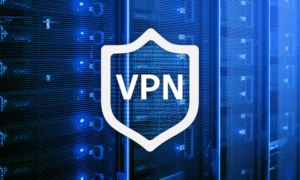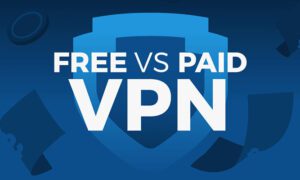In a world where our lives are increasingly intertwined with technology, the need for constant connectivity has become more than just a luxury—it’s a necessity. Mobile broadband has revolutionized the way we work, communicate, and access information on the go. But as we enjoy this convenience, it’s crucial not to overlook one critical aspect: protecting our data from potential threats lurking in the digital realm. Join us as we dive into the key security considerations every mobile broadband user must have at their fingertips, ensuring your personal and professional information stays safe while you explore the boundless possibilities of being connected anytime, anywhere.
Introduction
When it comes to mobile broadband and data security, there are a few key considerations to keep in mind. First and foremost, it’s important to make sure that your data is properly encrypted. This will help to protect your information if your device is lost or stolen. Secondly, be sure to use a secure VPN when accessing sensitive data or connecting to public Wi-Fi networks. Keep your software and operating system up to date with the latest security patches. By following these simple tips, you can help ensure that your data is safe and secure when you’re on the go.
Security Considerations for Mobile Broadband
When it comes to securing your data on the go, mobile broadband is a great option. However, there are a few key considerations to keep in mind. Here are some tips for keeping your data safe and secure when using mobile broadband:
1. Use a VPN: A VPN (virtual private network) is a great way to encrypt your data and keep it safe from prying eyes. When using a public Wi-Fi hotspot, be sure to connect to your VPN before sending any sensitive information.
2. Choose a reputable provider: Not all mobile broadband providers are created equal. Do your research to find a reputable provider that offers strong security features and protection against malware and other threats.
3. Keep your software up to date: Be sure to keep your operating system and other software up to date with the latest security patches. This will help protect you against known vulnerabilities that could be exploited by hackers.
4. Use caution when downloading apps. Only download apps from trusted sources, such as the official app store for your platform. Be sure to read reviews and do some research before installing any app on your device.
5. Enable two-factor authentication: If available, be sure to enable two-factor authentication for an extra layer of security. This feature requires you to enter a code or use a fingerprint or other biometric authentication in addition to your password when logging in or accessing sensitive information.
Data Encryption
Data encryption is the process of transforming readable data into an unreadable format. This is done using an algorithm and a key. The data can only be decrypted and read by someone who has the key. Data encryption is used to protect information from being accessed by unauthorized people.
Mobile broadband is a great way to stay connected while on the go. However, it’s important to be aware of the security risks that come with using public Wi-Fi or storing data on your device. Here are some key considerations for protecting your data when using mobile broadband:
• Use a VPN: A VPN encrypts your traffic and helps to keep your data safe from prying eyes.
• Be careful what you download. Only download apps and files from trusted sources. Avoid downloading anything from unknown or untrustworthy websites.
• Keep your software up to date: regularly update the operating system on your device as well as any apps you have installed. This will help patch any security vulnerabilities that could be exploited by attackers.
• Use a strong password: When setting up your mobile broadband account, make sure to use a strong and unique password. Avoid using easily guessed words or phrases like “password” or your birthdate.
Firewall Protection
A firewall is a security system that controls the flow of traffic between a network and the Internet. A firewall can be hardware, software, or a combination of both. Hardware firewalls are physical devices that are installed between your network and the Internet. Software firewalls are programs that are installed on computers and other devices on your network.
Firewalls protect your network by blocking incoming connections that are not authorized. They also block outgoing connections that could be used to connect to malicious websites or download malware. Firewalls can also be used to limit access to certain websites or resources on the Internet.
When you use mobile broadband, your data is transmitted over the airwaves. This means that it is possible for someone to intercept your data while it is in transit. To protect your data, it is important to use a VPN (virtual private network) service. A VPN encrypts your data so that it cannot be read by anyone who intercepts it.
In addition to using a VPN, you should also take steps to protect your device from malware. Be sure to install an antivirus program on your laptop or other device before connecting to the Internet using mobile broadband. Keep your antivirus program up-to-date and scan your device regularly for malware.
– VPNs
Public Wi-Fi hotspots are a convenient way to check your email, do some online shopping, or catch up on the news while you’re waiting for your coffee. But these networks are also notoriously insecure, and it’s all too easy for someone to snoop on your traffic and steal your personal data.
That’s where virtual private networks (VPNs) come in. A VPN encrypts all of your traffic, ensuring that no one can spy on what you’re doing. This is particularly important when using public Wi-Fi, but it can also be useful when connecting to unsecured networks or even your home network if you suspect that it might be compromised.
There are a number of different VPN providers out there, and it’s important to choose one that offers robust security features and doesn’t keep logs of your activity. We recommend Express VPN as a good option for mobile devices.
If you use a VPN, be aware that your data usage will likely increase as the VPN will need to encrypt and decrypt all of your traffic. This means that you may need to purchase a larger data plan from your mobile carrier.
Tips for Enhancing Security on Mobile Broadband Devices
As more and more businesses rely on mobile devices to stay connected, it’s important to take steps to ensure that these devices are secure. Here are some tips for enhancing security on mobile broadband devices:
1. Use a VPN: A virtual private network (VPN) can help encrypt data being transmitted over the air, making it more difficult for hackers to intercept.
2. Use a firewall: A firewall can help block unwanted traffic and protect your device from malicious attacks.
3. Keep Your Software Up-to-Date: Keeping your operating system and software up-to-date is one of the best ways to help prevent security breaches. Be sure to install updates as soon as they become available.
4. Use Strong Passwords: When creating passwords for your mobile devices, be sure to use strong, unique passwords that are not easily guessed. Avoid using easily accessible personal information such as birthdates or addresses.
5. Store Sensitive Data Securely: If you must store sensitive data on your mobile device, be sure to use a secure storage solution such as encrypted storage or a password-protected file locker app.
By following these tips, you can help keep your mobile devices safe and secure while you’re on the go.
Keep software up-to-date.
One of the most important security considerations with mobile broadband is keeping your software up-to-date. This includes your operating system as well as any applications you have installed. Outdated software can be full of security vulnerabilities that can be exploited by hackers. So, make sure you regularly check for updates and install them as soon as possible.
Another good security measure is to use a reputable antivirus program and keep it up-to-date. This will help defend your device against malware that could potentially steal your personal data or infect your device with a virus.
Always be cautious when using public Wi-Fi networks. These networks are often not secure and can leave your device and data vulnerable to attack. If you must use public Wi-Fi, make sure you only connect to websites that are encrypted (https) and avoid accessing sensitive information (like online banking).
Use a strong password and two-factor authentication (2FA).
When it comes to securing your data on the go, using a strong password and two-factor authentication (2FA) are key considerations. A strong password is one that is at least eight characters long and includes a mix of uppercase and lowercase letters, numbers, and symbols. Two-factor authentication adds an extra layer of security by requiring you to enter a code from a second device, such as your smartphone, in addition to your password.
Using a strong password and 2FA will help protect your data from being accessed by unauthorized individuals. However, it is important to note that no security measure is 100% foolproof. In order to further reduce the risk of your data being compromised, be sure to keep your devices updated with the latest security patches and only connect to trusted networks.
Conclusion
Mobile broadband is one of the most convenient ways to stay connected on the go. But it’s important to be aware of how you’re protecting your data when using this service. By following these key security considerations, you can maximize your protection and keep your data safe while enjoying the freedom mobile broadband provides. With a few simple steps, such as installing antivirus software, enabling firewalls, and encrypting your connection with a VPN, you can ensure that all of your online activities remain secure no matter where life takes you.



































